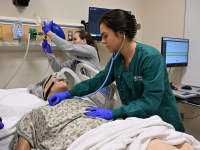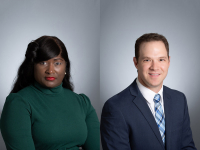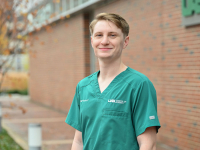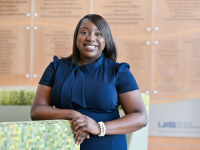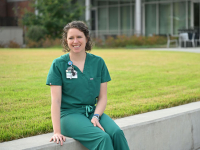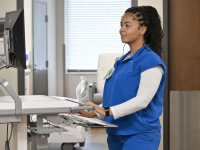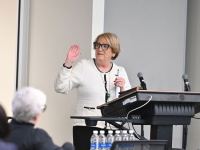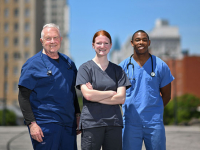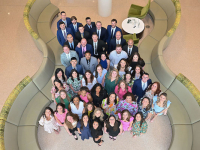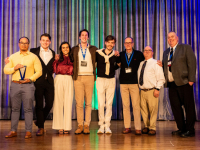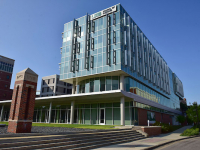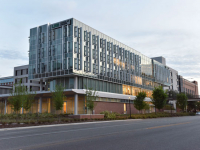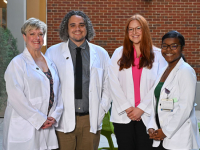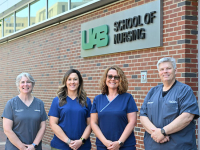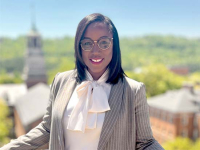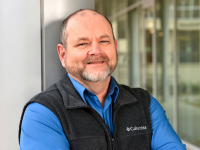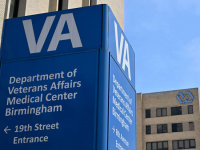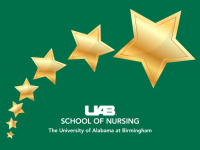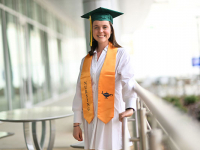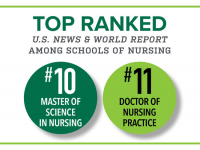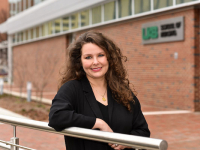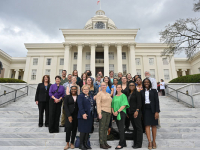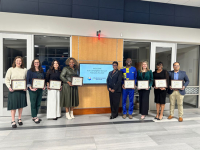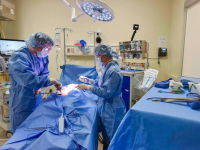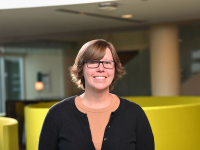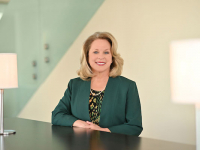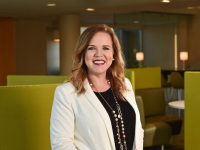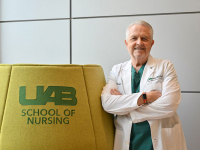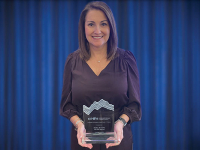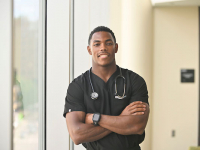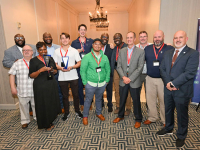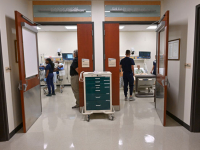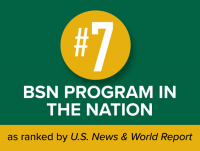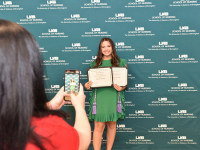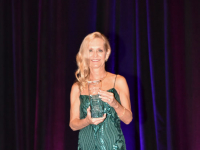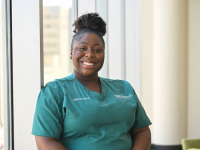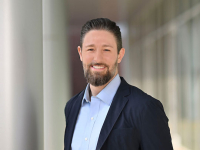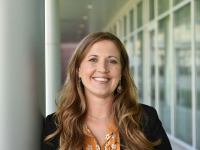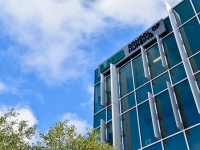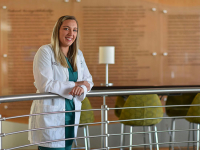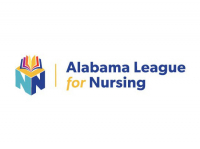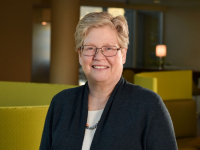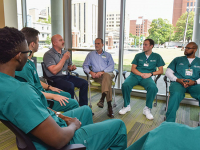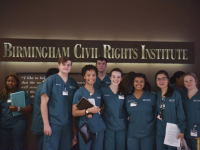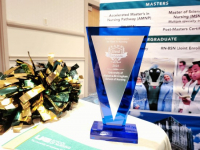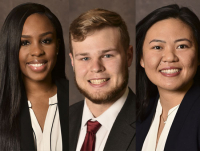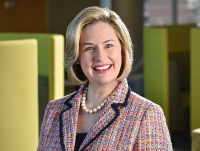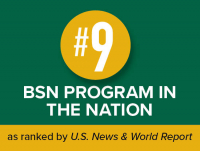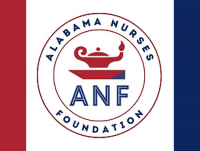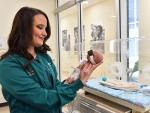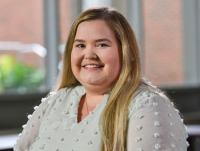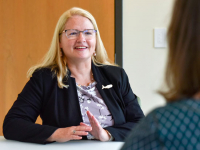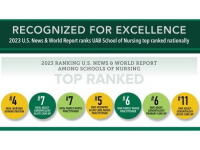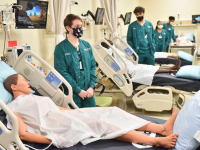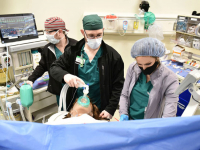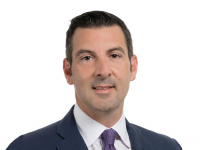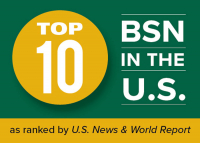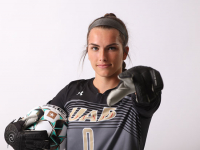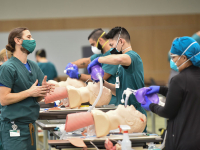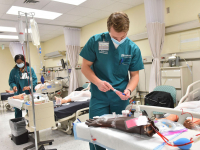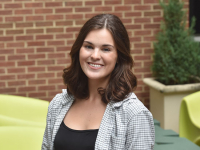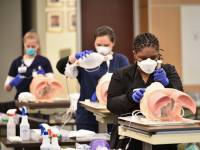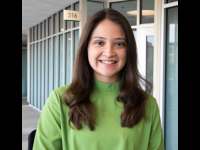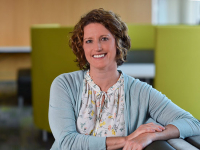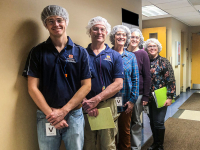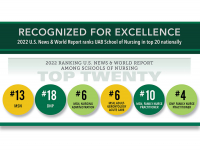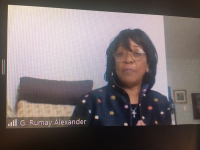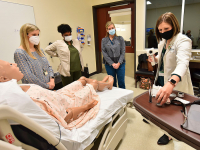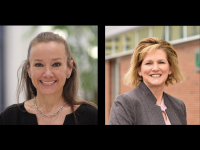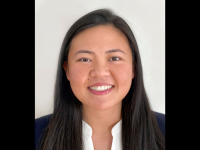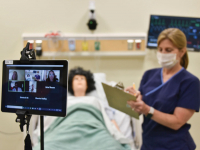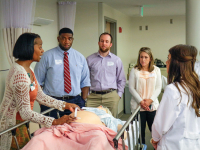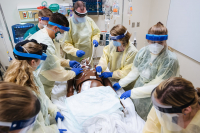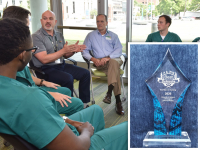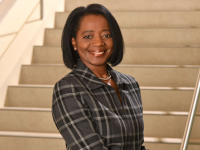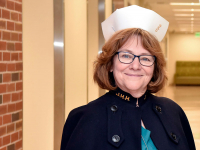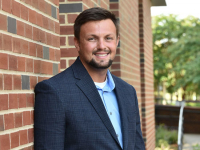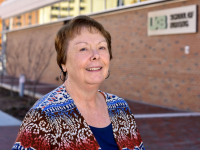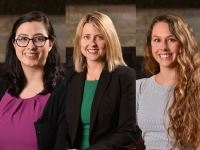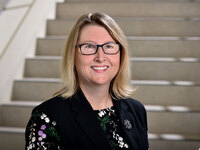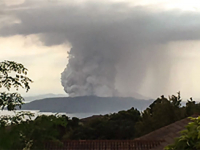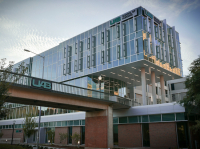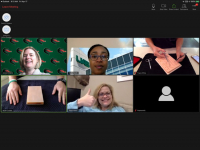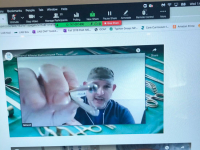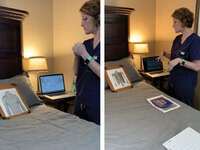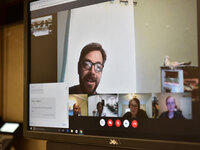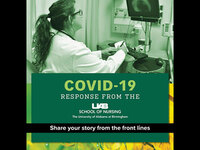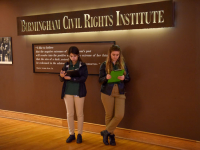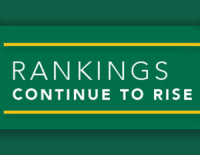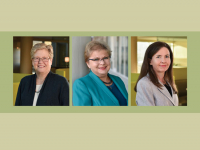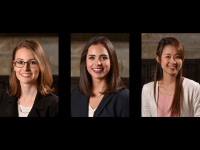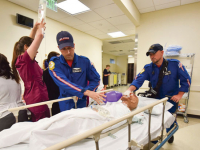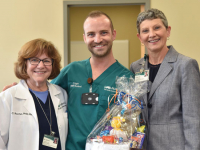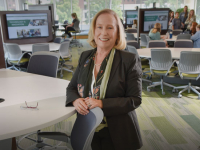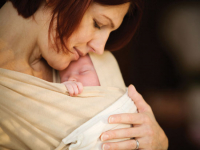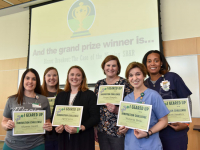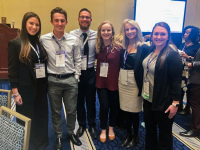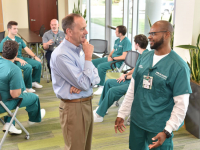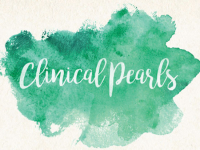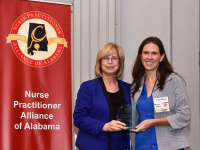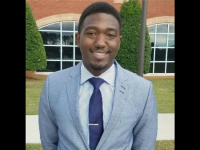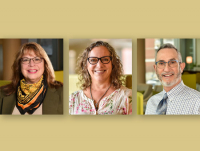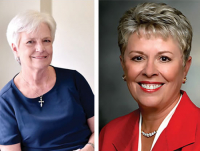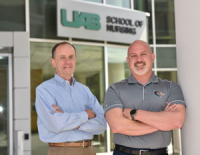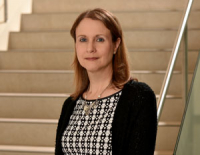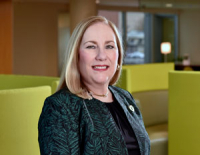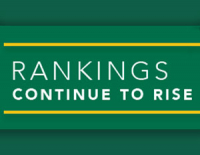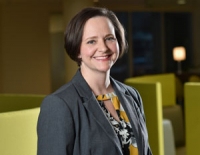As the novel coronavirus (COVID-19) pandemic continues to unfold, our innovative faculty and staff at the UAB School of Nursing continue to advance our missions of teaching, research and service, educating students, caring for patients and communities and developing leading-edge solutions to help improve quality of life.
To safeguard our campus community and minimize the spread of coronavirus, UAB and the University of Alabama System have prioritized the health and safety of students, faculty and staff, which includes moving all classes and student clinical activities to an online/ alternative format for the remainder of the spring semester and faculty and staff working from home.
“I am incredibly proud of how UAB School of Nursing faculty, staff, students, alumni and SON community have responded to this unfolding situation as it relates to the School’s missions,” said Dean and Fay B. Ireland Endowed Chair in Nursing Doreen C. Harper, PhD, RN, FAAN. “The global reach of nursing and its importance are abundantly clear through the impact our graduates and all nurses are having throughout the world during this pandemic. Their work serves to inspire us all.”
Academics and students
Through remote learning and collaboration, the School of Nursing resumed classes in an online format on March 25. For the school’s RN to BSN Pathway, which is already distance accessible, has been little to no impact on course delivery. The same can be said for graduate clinical didactic classes with the exception of several nurse anesthesia (NA) courses. These NA courses have transitioned online.
“Our faculty and staff are committed to supporting our students and providing the best possible nursing education,” said Professor and Senior Associate Dean for Academic Affairs Linda Moneyham, PhD, RN, FAAN. “We have wonderfully creative faculty who are invested in the success of our students and the nimble response from the faulty as well as the staff who support them is not only impressive, it shows how everyone in the UAB School of Nursing lives our core values every day. We want our students to know we are continuing to maintain the superior learning experiences they expect from us to ensure they are ready to take care of patients when called.”
Undergraduate and prelicensure students and faculty used to in-person classes have transitioned well to the new format, continuing the high-quality education the school is known for but also working to make these new experiences, especially for undergraduates, engaging and fun.
Assistant Professor Summer Langston, DNP, CRNP, ACNP-BC, AACC, held her first Zoom class session from the “beach,” complete with a Zoom beach background, flowers in her hair and a lei around her neck. She teased students, saying the real reason class was in an online format was “we are all at the beach.” Capturing the students’ attention and engaging them in the content helped students diminish apprehension about “this new normal” for class.
The RN first assist subspecialty also held its first virtual intensive. Assistant Professor Tracie White, DNP, CRNP, ACNP-BC, CNOR, CRNFA, and other instructors used web cameras, pre-recorded videos and PowerPoint presentations to demonstrate skills, ask questions and gauge student understanding.
Instructors have also come up with innovative ways for students to use household items to practice skills such as foley catheter insertion and safety equipment usage.
“Undergraduate and prelicensure faculty are collaborating with graduate faculty who already have developed innovative online teaching solutions and are deploying all available remote teaching options and learning methods, tips and tricks from them to make online learning just as engaging as that which occurs in face-to-face classes,” said Associate Dean for Undergraduate and Prelicensure Education Gwendolyn Childs, PhD, RN, FAAN. “It has been great to see how our faculty have taken these different mentoring and learning opportunities among themselves and run with them.”
With all classes now taught through Canvas via Zoom, and in lieu of in-person skills, simulation and clinical experiences, faculty are developing alternatives such as unfolding case studies, virtual simulations and skills return demonstration videos to aid in the online learning experience and so that students can fulfill the requirements for graduation.
“Our faculty have a long history of using technology to enhance clinical education,” said Professor and Associate Dean of Technology and Innovation, Jacqueline Moss, PhD, RN, FAAN. “Developing these types of learning experiences is not new to us — we are just ramping up the number and type of experiences faculty are creating to meet this challenge.”
Faculty also are developing experiences for graduate clinical students to augment traditional learning methods related to training and use of telemedicine and advanced diagnostic reasoning.
Professor and Associate Dean for Graduate Clinical Education Ashley Hodges, PhD, CRNP, WHNP-BC, FAANP, has worked with faculty to develop alternative clinical learning experiences using case studies, simulation and actual telehealth clinical visits, which can be substituted for a limited number of clinical hours.
“Our faculty are planning and designing alternatives and real clinical experiences to ensure that students complete all their required clinical hours and graduate on time,” Hodges said.
One thing all of the graduate clinical faculty have on top of mind, Hodges said, is that most of their students are also on the front line caring for patients. Faculty are working closely with those students to continue their success in their program.
“They are drawing on their own experiences as educators and providers to guide students through understanding the epidemiology, health care response and impact on the health system, as well as how to prepare for evolving workforce demand,” she added.
Accepted and Prospective Students
Moneyham said the coronavirus pandemic has demonstrated nursing is critical for the health of all communities, and the school’s Office of Student Success continues to work to make the transition into the UAB School of Nursing as easy as possible for those who have been accepted into the school and to answer any questions from prospective students.
“There is a great demand for our graduates, including those who work at the bedside and those who are advanced practice providers, to fill the many positions that our health care systems have open,” Moneyham noted. “We are working to ensure we continue our open pipelines for the nursing workforce to provide health care systems the nurses they need to deliver needed care. That is why it is important that we do everything possible to continue to recruit and enroll nursing students and to ensure they graduate on time.”
The school has hosted online information session for may programs virtually for nearly a year but is now is moving its weekly Friday BSN Information Sessions online and the weekly Wednesday Accelerated Master’s in Nursing Pathway Information Sessions online as well.
“Those interested in any of our programs can also go to the School’s YouTube page and take a video tour of the building and see all it has to offer, see students in action in our state-of-the-art nursing competencies suite and learn more about our AMNP Pathway, and PhD and DNP Programs from our students and graduates,” Moneyham said.
Clinical and Global Partnerships
The UAB School of Nursing is proud to have so many of our faculty continue to practice in addition to their teaching during the coronavirus pandemic. There are many faculty members who are carrying out essential capacities in their faculty practice and continuing to see patients in clinical settings.
Professor and Associate Dean for Clinical and Global Partnerships Maria Shirey, PhD, MBA, RN, NEA-BC, ANEF, FACHE, FAAN, said a number of faculty also continue to see and care for patients using telehealth technology. For example, the School has established a telehealth clinic that is housed in our telehealth suite for one of our faculty practices, The Foundry’s Changed Lives Mobile Clinic, which cares for residents of The Foundry Rescue and Recovery Mission. The clinic is staffed by faculty and undergraduate students who are practicing social distancing and proper hygiene techniques.
In addition, the school’s nurse-managed PATH (diabetes), HRTSA (heart failure), WellHouse (human trafficking survivors) and other community-based clinics along with our Nurse Family Partnership (NFP) of Central Alabama all are seeing patients and clients remotely using telehealth so that they can continue care for these vulnerable groups in our community. Some, including PATH and NFP, have also developed alternative delivery methods to ensure patients and clients get essential supplies like insulin and infant formula.
“Our clinics and NFP program offer vital services to populations who depend on us and it is at times like this that our can-do, caring spirit shines,” Shirey said. “We so appreciate the dedication of our faculty in practice for continuing to meet the needs of our most vulnerable populations.”
Likewise, the School’s PAHO/WHO Collaborating Center for International Nursing is working with our Latin American and Caribbean nursing colleagues to share educational technology strategies and programs to assist nursing schools in the PAHO region to switch their instruction from in-class to distance accessible using electronic learning.
Associate Professor and PAHO/WHO Collaborating Center Deputy Director Ada Markaki, PhD said the School’s ability to quickly provide resources to our international colleagues shows the importance of the WHO’s sustainable development goals and international partnerships.
“We are collaborating closely with the Pan American and Global Network of WHO Collaborating Centers, as well as UAB’s Sparkman Center for Global Health to coordinate our efforts with international colleagues,” Markaki said.
Technology and Innovation
At the UAB School of Nursing, technology and innovation are core pillars that support our missions, and the educators, simulation and technology staffs are working to ensure top resources are available to our students, faculty and the nursing community.
“The Office of Technology and Innovation has been working behind the scenes to support the development, implementation and evaluation of distance education within the School of Nursing,” Moss said. “They have also been working to make these resources available to others outside the school, including hospitals and PAHO/WHO partners who also need to ramp up distance learning in a short time with few resources.
The office is supporting the deployment of telehealth clinical experiences, both real and simulated, and has helped set up telehealth clinical resources for the Office of Clinical and Global Partnerships, including the remote Changed Lives Christian Center Clinic. It also is continuing to promote collaboration and educational innovation among the faculty through regular, virtual “Coffee in the Collaboratory” meetings, and coordinating with the Office of Student Success and Academic Affairs in the planning of a Virtual Spring Fling so students still have a Spring Fling experience, though now it will be distance-accessible rather than on-campus.
Online resources including the Clinical Pearls video series and podcast remain available on the UAB Nursing Health Network, and schools around the world can use this resource as they look for rich distance-accessible content for their classes.
The school’s simulation labs also are reaching out to help our UAB Nursing partner, UAB Hospital. The school has donated all of its personal protection equipment (PPE) that students use in the SON simulation laboratories to UAB Hospital as well as our school’s nurse-led community clinics which school faculty and staff continue to operate.
“In these unprecedented times, the Office of Technology and Innovation has worked to not only develop and enhance online education opportunities but also to see what ways we can support our community locally and globally,” Moss said. “As we encounter new opportunities, we look forward to assisting through the development of novel technological innovation in the development of engaging learning and fostering community through online collaboration.”
Research and Scholarship
In order to promote social distancing and the necessary health and safety precautions in the face of COVID-19, PhD students are working with their faculty mentors to identify research-related work that can be done remotely.
While many research activities that require contact with study participants also are on hold, the school is dedicated to continuing sustainable scholarship across all missions, and the Office of Research and Scholarship is providing resources that support collaboration, education and research and extramural grant development.
The ORS is continuing to support faculty through all stages of the grant process and to aid in the creation of poster, presentation and model development and design. Regular programs, including a novice clinical writers’ group, editorial services and grant reviews, are also continuing virtually.
“In times like this, we recognize the importance of research, scholarship and knowledge creation,” said David Vance. “As the Office of Research and Scholarship, we are supporting the scholarship of nursing and to strengthen the nursing profession’s contribution to enhancing the health and health care of individuals and populations. Grants are still being written, submitted and funded, as we are ensuring the faculty, predocs and postdocs continue to be supported through this process. And, we are continuing our regular programming, just in a remotely accessible setting.”
University-wide updates
As a resource for our campus and community, UAB has created a webpage dedicated to COVID-19 information and updates, www.uab.edu/coronavirus.
“We also will keep the UAB School of Nursing community updated through our website and social media pages,” Harper said. “The UAB School of Nursing appreciates all of our students, alumni, faculty, staff, donors and other constituents for their ongoing commitment to nursing, health care and support of our school. We ask that you all stay connected to us, keep your social distance, and cherish your time with loved ones at home.”
Harper said while we also know many of our alumni, graduate and even some undergraduate students are on the front lines caring for patients as part of their job, the hope is that they and other members of the UAB School of Nursing community are able to take the necessary precautions to remain safe and healthy.
“Please know we are thinking about you and your families during these unprecedented times,” Harper said. “For those providing life-saving care in these important times, we thank you. We are here for you and are proud of you.”


